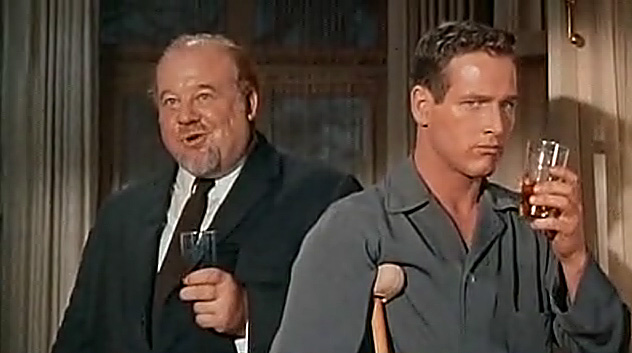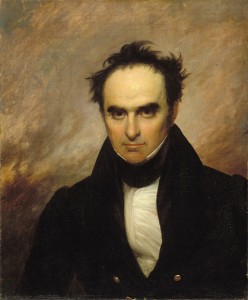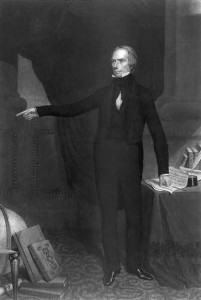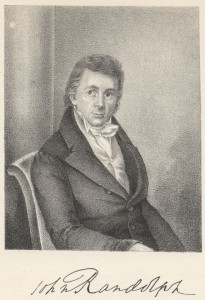
“What’s that smell in this room? Didn’t you notice it, Brick? Didn’t you notice the powerful and obnoxious odor of mendacity in this room?”
That’s Big Daddy stating the unfortunate obvious in Tennessee Williams’ great American play Cat on a Hot Tin Roof, and although we all know Big Daddy had some pretty serious problems of his own, being mendacious about the widespread rot of mendacity was not among them.
More and more, American politics has become a particularly noxious form of theater: Mr. Scatter commented on the subject a while back when Joe Wilson, an obscure congressman from South Carolina, gained momentary celebrity by shouting “You lie!” at Barack Obama as the president was addressing Congress on health care reform. In that post, we traced a little of the history of a form of American theater that has in its time been literally a blood sport. (And also a curious concocter of doublespeak: Mendacifiers cry “Mendacity!” to reframe the public perception of truth.)
So this morning’s recommended reading comes from Earl Blumenauer on the opionion page of The Oregonian, where the Democratic congressman from Portland talks about the craziness of the “Death Panels” he most emphatically did not create and how his uncontroversial proposal for the health-reform package was twisted into an utter fabrication in an attempt to scare voters witless with visions of the Big Government Swamp Monster sucking out grandma’s brains.
Blumenauer’s proposal was for insurance coverage for discussions with a doctor about end-of-life care decisions. In the hands of the Tea Party crowd and their congressional enablers, that quickly morphed into government “death panels” deciding who would live and who would die — a particularly cynical, yet frustratingly effective, Big Lie. And it was notable for one scary fact: The charge was ludicrous and ridiculously easy to refute, yet people believed it anyway.
It’s old hat to compare the making of legislation to the making of sausage, and what we’re watching as health care reform winds slowly through Congress is a classic view of the sausage factory. It’s about compromises, a little bit of pork (naturally), political tradeoffs, industry pressure, vote-counting, and all those messy aspects of the process you’d rather not think about when you’re slathering mustard on your frank.
But what Blumenauer is talking about is different. It’s the hijacking of the entire discussion for the purposes of a rank power play — an attempt to bypass, and so destroy, the rational discussion and implementation of governmental process. It’s the anarchy of a new Monkey Wrench Gang.
Blumenauer speaks remarkably candidly for a man familiar with the artful evasion that has become the default language of elected officialdom, which relies for its continuance on its ability to offend as few people as possible and seem to stand in many corners at once. The congressman lays a good share of blame for the “death panel” debacle on the mass media, and I’m inclined to agree with him. When you breathlessly cover the wrestling match without emphasizing that the fight is rigged, you are legitimizing the illegitimate and further shredding the rags of your own reputation. What if the mendacifiers gave a press conference and nobody came?
***************
And what if information was free? It’s a state that poet, academic and prodigious blogger Kenneth Goldsmith, in a post titled If It Doesn’t Exist on the Internet, It Doesn’t Exist, proposes is already beginning to happen. A provocative read, and many thanks to LaValle of Fifty-two Pieces, an inveterate devourer of the virtual library commons, for passing it along.
On the same front but more locally, a new group called We Make the Media is organizing a potentially exciting new home for online journalism in Portland, possibly with a nonprofit funding base.
As our mainstream news sources crumble, the need for new organizing engines for information becomes more crucial. Among We Make the Media’s organizers: Ron Buel, founding editor and publisher of Willamette Week; original Scatterer Barry Johnson; Jay Hutchins, vice president of news at Oregon Public Broadcasting.
The group will hold an all-day conference from 8 a.m. to 5 p.m. this Saturday, November 21, at the University of Oregon’s Turnbull Center, 70 N.W. Couch St. in Portland. Check the Web site for registration and details. As the song says, this could be the start of something big.
***************
Photo: Burl Ives as Big Daddy and Paul Newman as Brick, from the trailer for the 1958 movie version of Cat on a Hot Tin Roof. Wikimedia Commons
 No figure in history is more honored in our news coverage than the revolutionary Russian set designer Grigori Potemkin, and his ingeniously adaptable
No figure in history is more honored in our news coverage than the revolutionary Russian set designer Grigori Potemkin, and his ingeniously adaptable  And the House came tumbling down.
And the House came tumbling down. Perhaps the show’s most intriguing plot twist is the revelation, as the
Perhaps the show’s most intriguing plot twist is the revelation, as the